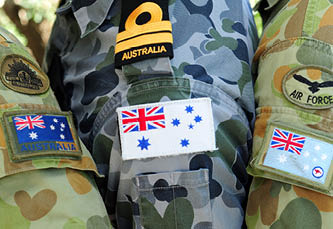The Australian Defence Force has committed to adding 18,500 personnel to its headcount. The 30% rise marks the biggest increase in peacetime, according to the federal government.
This will take the number of Defence Force personnel to 80,000 by 2040. The new staff will work in cyber defence and on ships such as the Arafura-class offshore patrol vessel and Hunter-class frigates. They will also work on a future nuclear-powered submarine fleet pledged to Australia under the AUKUS alliance with the US and UK.
Last week, Scott Morrison, Australia’s prime minister, announced investment for the plan of AUS$38bn (US$ 27.56bn). He said the decision represented “a significant vote of confidence in [Australia’s] defence forces”, as well as a “recognition by our government, which has always been clear-eyed about threats and the environment that we face as a country as a liberal democracy in the Indo Pacific”.
Citing the invasion of Ukraine, which began last month on the order of Russian president Vladimir Putin, Morrison said: “People who believe that President Putin’s only ambition is for the Ukraine don’t understand the history that our military leaders understand.”
Peter Dutton, Australia’s Defence Minister, said the federal government’s decision emphasised Australia’s commitment to its international allies. “It makes us a more credible partner with the United Kingdom, the United States and NATO, with Japan, with India and many other partners in the Southwest Pacific. And if we are to rely on them, they need to rely on us,” he said.
Lessons of history
Since the start of the war in Ukraine, several governments across Western Europe and allied regions have increased their defence spending.
The German government pledged to spend €100bn (US$109.65bn) of its 2022 budget on its military, and plans to raise annual defence spending to around 2% of GDP.
The UK spends around £40bn (US$52.1bn) on defence. According to NATO figures, the country last year spent 2.3% of its GDP in this area, compared to 3.5% by the US. The UK is considering increasing its defence spending, though the UK Ministry of Defence was the only government department to have its budget reduced in last autumn’s spending review.
France meanwhile plans to raise its defence spending by €1.7bn on last year to €40.9bn (US$45bn).












